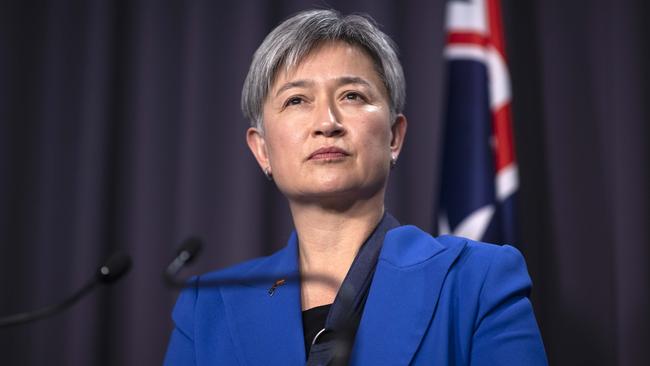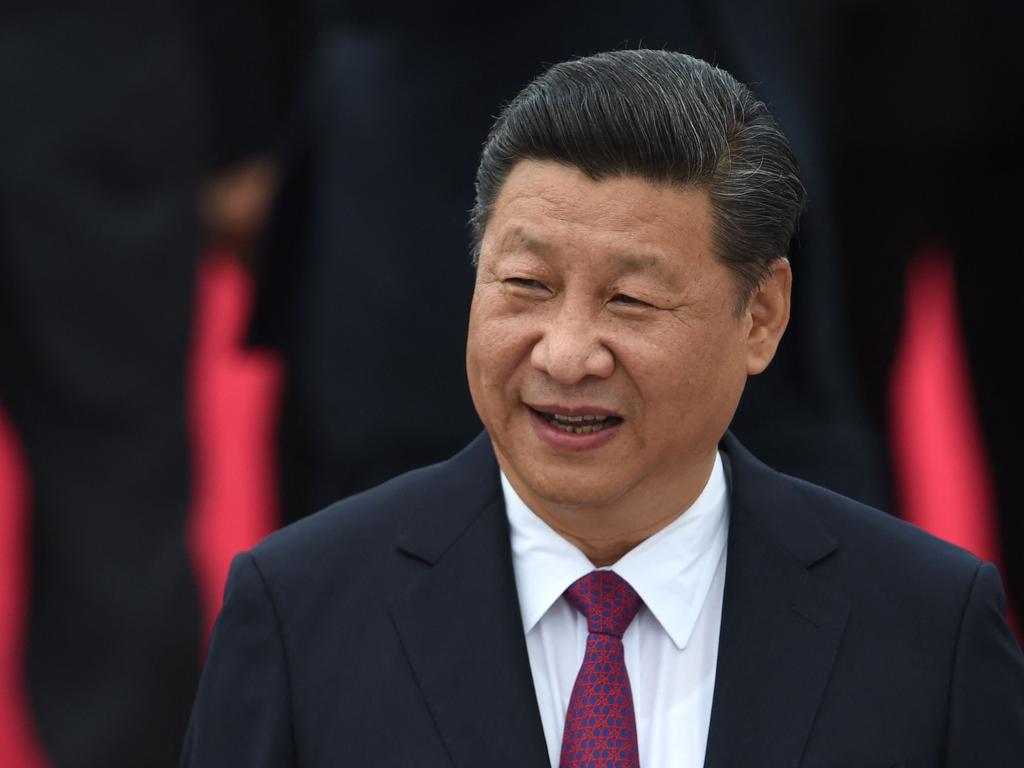Taiwan urges world to follow Penny Wong’s stance on China
Taiwan named Australia as a model for other countries, calling for international support to help it withstand a campaign of extraordinary Chinese military intimidation.

Taiwan named Australia as a model for other countries to follow as the imperilled liberal democracy called for international support to help it withstand a campaign of extraordinary Chinese military intimidation, which Beijing said would be extended indefinitely.
In an address to the international community – delivered hours after Beijing launched a scathing attack on Penny Wong – Taiwanese Foreign Minister Joseph Wu thanked Australia and other countries that had denounced Beijing’s unprecedented aggression.
“Taiwan is grateful to all of its friends around the world who have stood up courageously to condemn China’s actions and to support Taiwan,” Mr Wu said on Tuesday, in the Taiwanese government’s most direct comments on the ongoing crisis. “The support of so many nations lets Taiwan people know that we are not alone.”
Late on Tuesday, Beijing responded by announcing that the Chinese People’s Liberation Army would continue drills to prepare for the “joint encircling” of Taiwan, continuing the threatening display of its military might.
The PLA’s Eastern Theatre Command did not give an end date for its drills in airspace and waters surrounding Taiwan, which come after four days of live-fire exercises that included the launching of 11 ballistic missiles over Taiwan’s main island.
Asked what the international community could do to help Taiwan, Mr Wu singled out as models Canberra, Tokyo and Washington, which have co-ordinated their responses to China’s assertiveness – and enraged Beijing.
“In the past few years … we have seen more countries adopt their own Indo-Pacific [strategies] … and they join hands with United States or Japan or Australia in conducting freedom-of-navigation operations in this region,” said Mr Wu, a close confidant of Taiwan’s President Tsai Ing-wen.
“These are concrete actions to ensure that [the Indo-Pacific] remains free and open.”
Taipei’s words of praise came after Beijing escalated a separate campaign of intimidation on the Albanese government. China’s Foreign Ministry accused Senator Wong of violating the UN Charter and undermining regional peace and stability, after she joined her US and Japanese counterparts to condemn China’s firing of missiles at Taiwan.
In an emphatic dismissal of Senator Wong’s call to lower the temperature of the dispute, Beijing said the new Australian government was creating further “obstacles” in its already strained relationship with China.
Repeating words used in attacks on the Morrison government, the Foreign Ministry said Australia was entirely to blame for the breakdown – further jolting Canberra’s recent attempts to stabilise the relationship.
“In the past few years, China-Australia relations have experienced serious difficulties for reasons caused by the Australian side,” said Foreign Ministry spokesman Wang Wenbin. He said the Albanese government had worsened the situation with its condemnation of China’s military activity.
“The Australian side, in disregard of facts, have wantonly criticised China’s legitimate, justified and lawful measures to safeguard its sovereignty and territorial integrity,” Mr Wang said.
He said Australia, the US and Japan had distorted the “one-China principle” – Beijing’s formulation for relations with Taiwan. “What some individual countries have done is essentially an attempt to misrepresent and distort the one-China principle,” Mr Wang said. “Australia’s act violates the purposes and principles of the UN Charter, grossly interferes in China’s internal affairs, and undermines regional peace and stability.”
Senator Wong declined to comment, while opposition foreign affairs spokesman Simon Birmingham said Beijing’s claims were “ridiculous”. “The only action which is threatening peace and stability in the region is China’s military over-reaction,” he said. “It is ridiculous to suggest that Australia calling for de-escalation of military activities is a breach of the UN Charter or constitutes any interference in China’s internal affairs.
“Australia has long been clear that we oppose any unilateral change to the status quo, especially by military means.”
Since switching its formal recognition from Taipei to Beijing in 1972, Australia has had a One China policy which is distinct from Beijing’s One China principle. Canberra’s policy acknowledges China has a claim over Taiwan, but allows for Australia to have substantial unofficial relations with Taipei.
Australia has always insisted that any change to the status quo must be peaceful. That policy – shared by Japan, the US and most wealthy countries – has allowed Taiwanese space to create their vibrant self-ruled democracy and dynamic economy.
But – in a major concession to Beijing – Australia’s policy also says Taiwan is not allowed to formally declare its independence.
“Beijing has worked for many years in Australia to erode the ambiguity of our One China policy and normalise its One China principle in national policymaking and public institutions,” said Mark Harrison, an expert on Australia’s relations with Taiwan and China at the University of Tasmania.








To join the conversation, please log in. Don't have an account? Register
Join the conversation, you are commenting as Logout